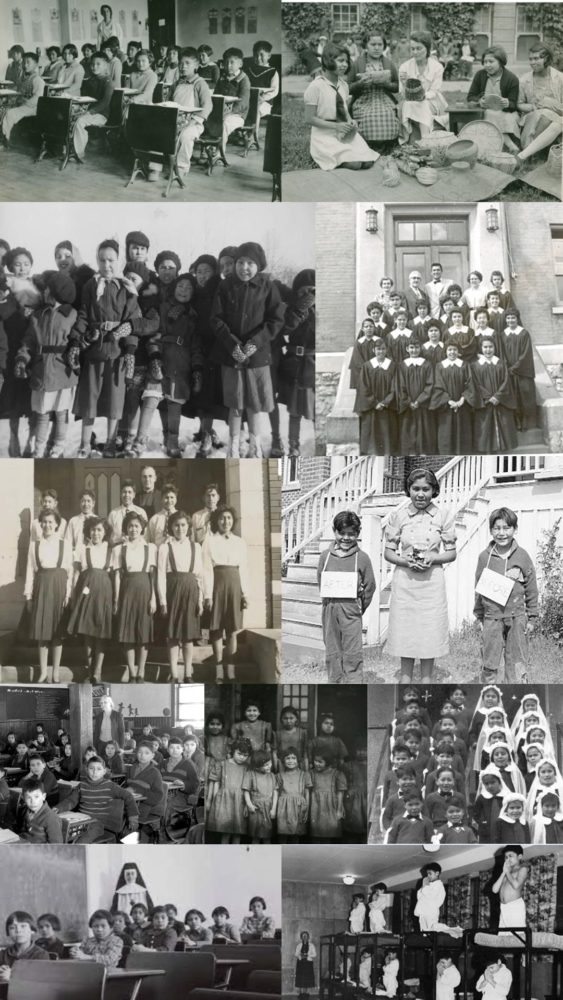
AFCS along with our ten member Friendship Centres, actively support 47 of the 94 Calls to Action through our existing work.
AFCS is committed to honouring all the work of Indigenous people that has come before us, including the Truth and Reconciliation Commission’s Calls to Action. Every Monday, Wednesday, and Friday throughout September, we will be sharing a different Call to Action on our social media pages. The Friendship Centre Movement in Saskatchewan continues our work to honour every call moving forward.
AFCS currently acts on these Truth and Reconciliation Commission’s Calls to Action
2, 7, 8, 9, 11, 14, 15, 17, 19, 21, 22, 23, 30, 31, 35, 39, 40, 43, 44, 45, 51, 53, 54, 55, 56, 56, 61, 64, 65, 66, 67, 69, 71, 72, 73, 74, 78, 79, 82, 83, 86, 87, 88, 89, 90, 92, 93
Reference the entire list here: AFCS Calls to Action
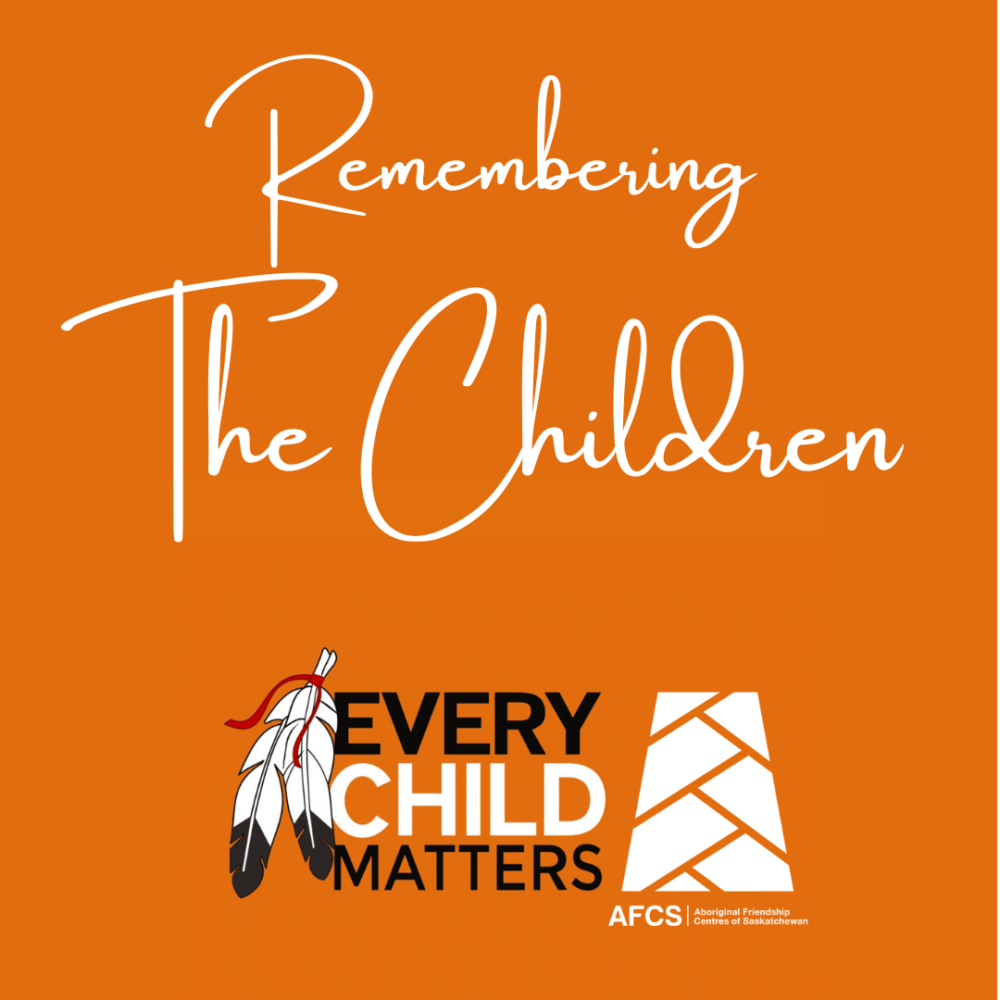
Remembering the Children
The Truth and Reconciliation Commission Calls to Action include a request to honour Survivors of Residential Schools and all the children who were lost to their families and communities. We memorialize the children lost to the residential school system and honour Survivors and their families. Learning and commemorating the truth of our history from First Nations, Métis, and Inuit knowledge keepers is an important part of the path to Reconciliation.
LEARN MORE
https://nctr.ca/education/trw/
Educational Package
Missing children and the existence of unmarked burial sites at Residential Schools across Canada have been well-known for decades among Indigenous communities. However, Canadians are still grappling with the truths about Residential Schools, spurring long-overdue conversations inside and outside the classroom.
Remembering the Children, the National Centre for Truth and Reconciliation’s publication for students, offers a way to begin those conversations. It takes readers to a variety of Residential Schools across time and space, opening a door into a past that reverberates today, while also celebrating the resilience and resurgence of First Nations, Inuit and Métis peoples’ culture.
Student Memorial Register
The creation of a National Residential School Dea th Register is an important Call to Action issued by the Truth and Reconciliation Commission of Canada. The TRC’s own work on Missing Children and Unmarked Burials stemmed from calls issued by Survivors and others to properly honour the children that never returned home from the schools. The creation of this memorial site builds upon the extensive work conducted by the TRC. Throughout community engagement events held by the NCTR, Survivors, knowledge keepers, community members and Elders collectively expressed how important it is for these children to be remembered and honoured. This memorial honours these children and makes their names known to help ceremonies and memorials take place in communities.
LEARN MORE
https://nctr.ca/memorial/national-student-memorial/
The Current Numbers
The effort to fully document the children that never returned home from the schools remains ongoing. The Truth and Reconciliation Commission identified 1953 children, 477 students where additional investigation is required and an additional 1242 students where they are known to have passed away but their names are not yet known. The NCTR has conducted further review of the records and has added an additional 485 students to the memorial. This number is expected to climb as additional work is conducted.
In total there are presently 4122 children within the national student memorial register. Research efforts by the NCTR are ongoing, and this number will increase over time. Please note that at present, this memorial only contains students who attended IRRSA and does not include students who died while attending day schools or other non-IRSSA schools.
Creating a comprehensive list of the children that never returned home from residential schools is complex and required years of research. Hundreds, if not thousands of people have contributed to this research. The research was conducted using church and government records collected through the TRC’s document collection process. Indian Affairs Annual reports, death certificates and admission and discharge records are were used in this research. In some cases, churches provided lists of students known to have died at a residential school to the TRC. Statements were given by Survivors, intergenerational survivors and community members also formed an essential part of this research. Ongoing information from Survivors and communities presents an important opportunity to ensure that no child is forgotten.
The Children Remembered – Residential School Archives Project
LEARN MORE
https://thechildrenremembered.ca/
4Rs Youth Movement
Changing the country by changing the relationship between Indigenous and Non – Indigenous Youth
Respect, Reciprocity Reconciliation & Relevance
LEARN MORE
https://www.instagram.com/p/CjF4uK8g4CF/
Key Reconciliation Documents Resource page
https://4rsyouth.ca/resources/key-reconciliation-documents/

We call upon the federal government to amend the Physical Activity and Sport Act to support reconciliation by ensuring that policies to promote physical activity as a fundamental element of health and well-being, reduce barriers to sports participation, increase the pursuit of excellence in sport, and build capacity in the Canadian sport system, are inclusive of Aboriginal peoples.
The Living Skies Inigenous Basketball League was assembled by AFCS and is funded under the Sport Support Program, Sport for Social Development in Indigenous Communities. This comes through Sport Canada which is part of the Department of Canadian Heritage.
Living Skies Indigenous Basketball League (LSIBL) is Saskatchewan’s first ever, provincial-wide Indigenous youth basketball league. Although the league was initially founded for Indigenous youth, all athletes are welcome to participate. Basketball can be a vessel for reconciliation and meaningful change in our communities. Learn More: https://www.livingskiesbasketball.com/
Athletes from the ages of 11-17 can participate in the league. There is no cost to register and up to 650 athletes can participate. The Junior Division will run from October 2022 and wrap up with a Provincial Championship in March 2023, the Senior Division will run from April 2022 to July 2022. The league provides a holistic approach to sport, working on the physical, mental, spiritual, and cultural aspect of every athlete. LSIBL consists of three components:
- On-Court Sessions
- Workshops
- Cultural Education
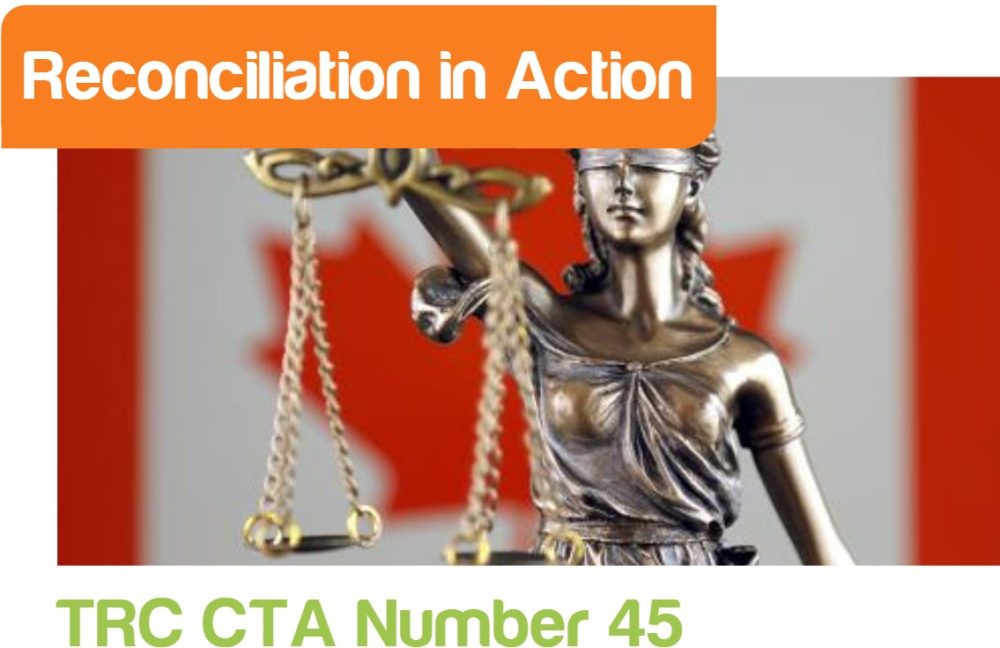
We call upon the Government of Canada, on behalf of all Canadians, to jointly develop with Aboriginal peoples a Royal Proclamation of Reconciliation to be issued by the Crown. The proclamation would build on the Royal Proclamation of 1763 and the Treaty of Niagara of 1764, and reaffirm the nation-to-nation relationship between Aboriginal peoples and the Crown.
The proclamation would include, but not be limited to, the following commitments:
i. Repudiate concepts used to justify European sovereignty over Indigenous lands and peoples such as the Doctrine of Discovery and terra nullius.
ii. Adopt and implement the United Nations Declaration on the Rights of Indigenous Peoples as the framework for reconciliation.
iii. Renew or establish Treaty relationships based on principles of mutual recognition, mutual respect, and shared responsibility for maintaining those relationships into the future.
iv. Reconcile Aboriginal and Crown constitutional and legal orders to ensure that Aboriginal peoples are full partners in Confederation, including the recognition and integration of Indigenous laws and legal traditions in negotiation and implementation processes involving Treaties, land claims, and other constructive agreements.
Indigenous Title and The Doctrine of Discovery
The Doctrine of Discovery was the framework Spain, Portugal, and England used for the colonization of many lands, including North America. This excerpt from Letters Patent (Feb 3, 1496) issued by King Henry VII to the explorer John Cabot and his sons for the discovery of new and unknown lands, shows the intent to assume ownership of “discovered” lands. Learn More
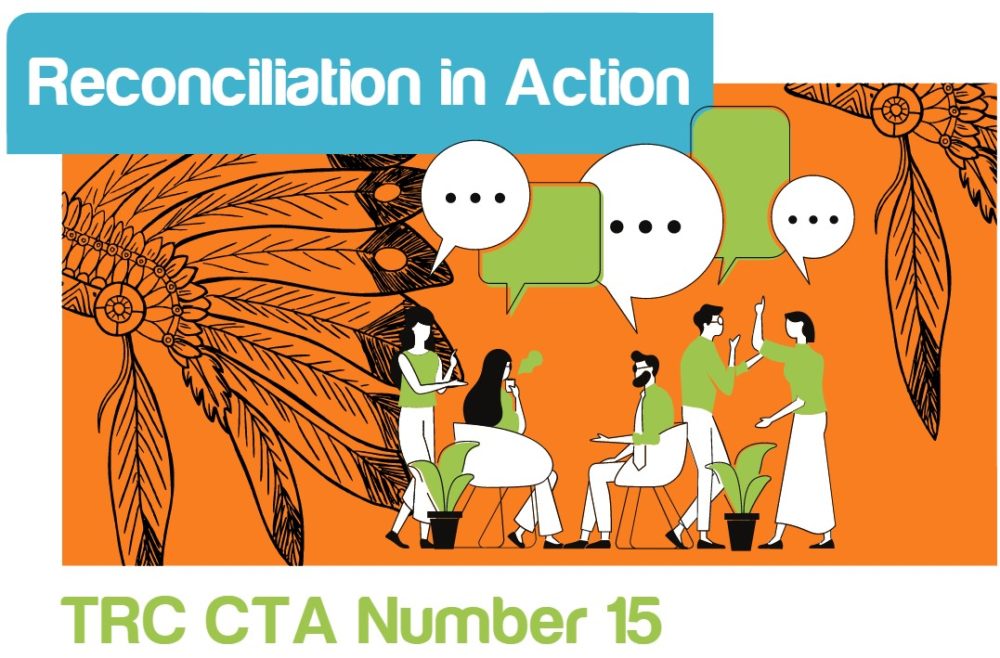
The Truth and Reconciliation Commission Calls to Actions include a call for a Languages Act that incorporates the principle that the preservation, revitalization and strengthening of Aboriginal languages and cultures are best managed by Aboriginal people and communities.
For indigenous peoples, languages not only identify our origin or membership in a community, they also carry the ethical values of our ancestors – the indigenous knowledge systems that make us one with the land and are crucial to our survival and to the hopes and aspirations of our youth.
Call to Action #15
We call upon the federal government to appoint, in consultation with Aboriginal groups, an Aboriginal Languages Commissioner. The commissioner should help promote Aboriginal languages and report on the adequacy of federal funding of Aboriginal-languages initiatives.
SIMFC in Saskatoon and NYFC in Regina hosted a series of courses in Indigenous languages. These Language Day Camps, and 8 week long courses feature teachings on such Languages such as: Nakota (Assiniboine), Dakota (Chipewyan), Cree, Dene, Michif, Saulteaux, and there is even a Sign Language Class available.
For more information in Regina visit http://www.newoyotina.ca/ or email [email protected]
In Saskatoon visit https://simfc.ca/ or email [email protected]
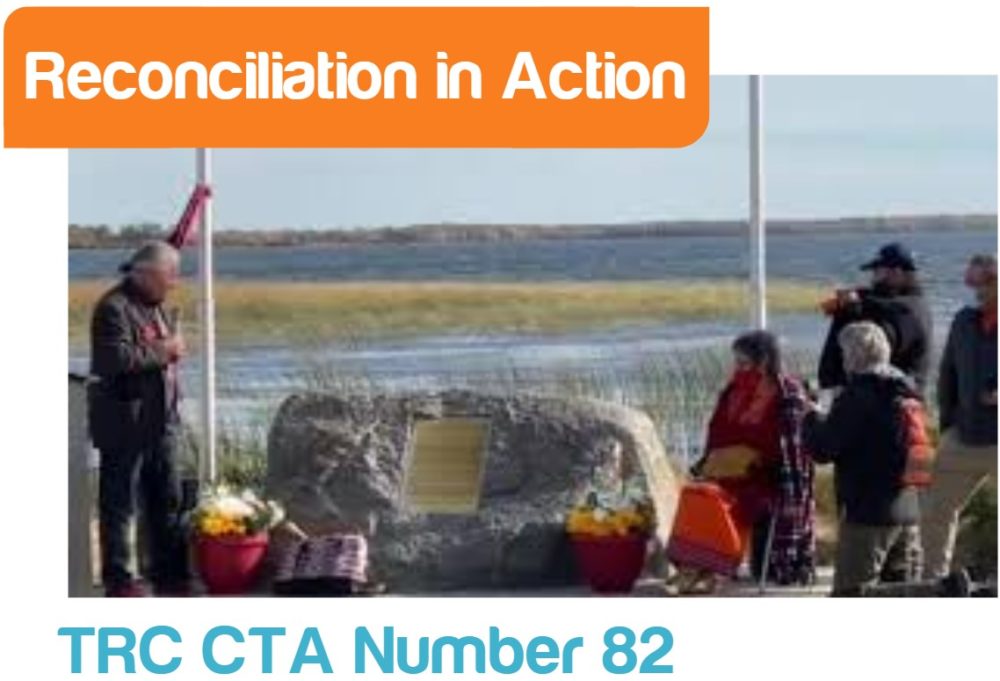
The Truth and Reconciliation Commission Calls to Action include a request to honour Survivors of Residential Schools and all the children who were lost to their families and communities.
Call to Action #82
We call upon provincial and territorial governments, in collaboration with Survivors and their organizations, and other parties to the Settlement Agreement, to commission and install a publicly accessible, highly visible, Residential Schools Monument in each capital city to honour Survivors and all the children who were lost to their families and communities.
The Roman Catholic Church operated residential schools for boys and girls at Île-àla-Crosse from 1821 to 1976 in what became Treaty 10 land. The school had devastating fires, many known tragedies, and massive funding problems. The students here experienced physical and sexual abuse, language and culture loss, and loneliness and separation from family.
The Monument
A Monument to the Île-à-la-Crosse Métis Residential School Survivors was installed in 2021. A project organized by the Sakitawak Métis Elders Group. Watch the ceremony here:
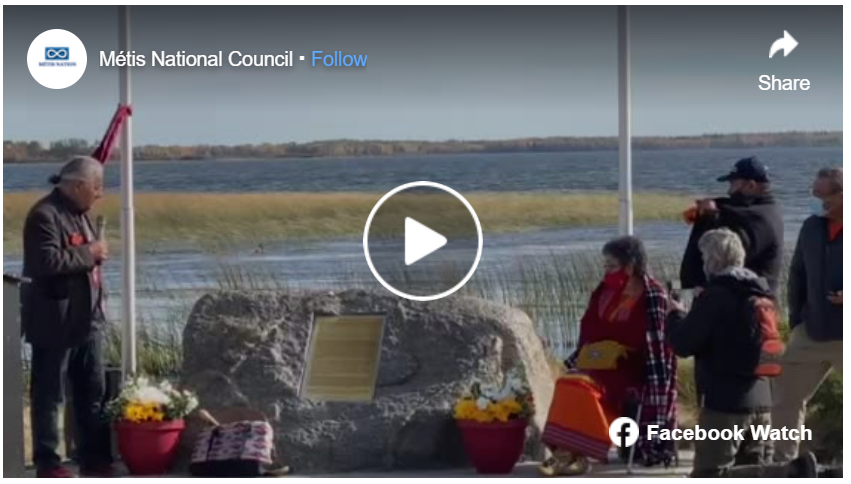
The Survivors
Île-à-la-Crosse Métis Residential and Day School Survivors Speak. Watch Here:
About the School
Learn more about the Île-à-la-Crosse Residential School | Métis School here:
https://www2.uregina.ca/education/saskindianresidentialschools/ile-a-la-crosse-residential-school-metis-school/
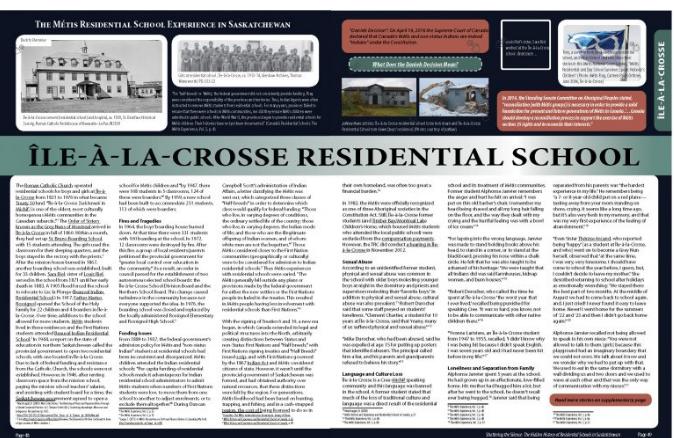
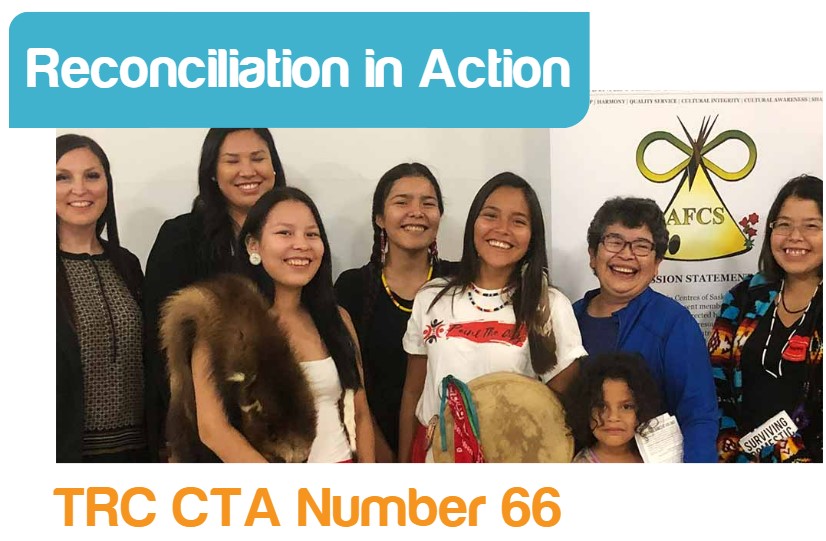
We call upon the federal government to establish multiyear funding for community-based youth organizations to deliver programs on reconciliation, and establish a national network to share information and best practices.
Urban Programs for Indigenous People (UPIP) is the funding stream implemented by Indigenous Services Canada. Every $1 invested by the federal government through UPIP funding has been leveraged with almost $6 of additional funding by the Friendship Centres.
This is a return on investment (ROI) of 492%
UPIP includes two funding streams; Organization Capacity as well as Programs and Services. OC covers costs for the day-to-day operations such as staffing, utilities and building payments (rent or mortgage). PS covers specific project costs that fall into any of the six key areas; women, vulnerable populations, youth, transition services, outreach programs and community wellness programs.
Funding Key Areas
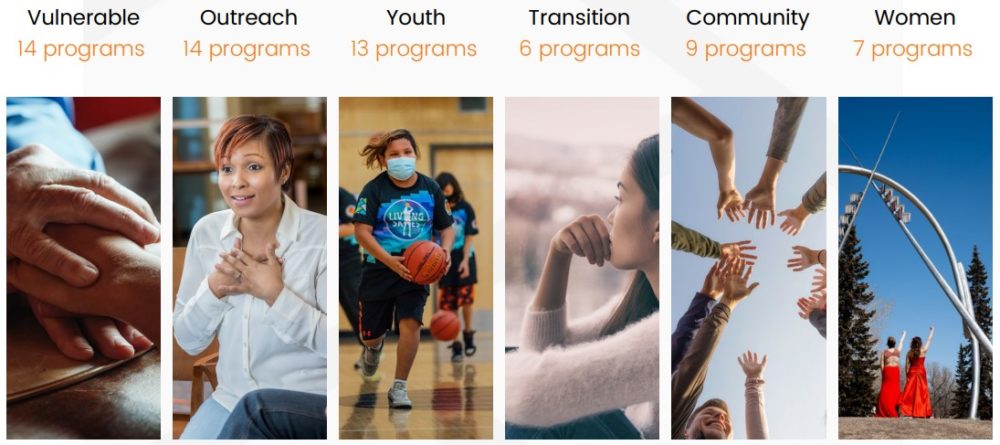
History
In 2017, the National Association of Friendship Centres signed a 5 year agreement with Indigenous Services of Canada to offer Organizational Capacity (OC) and Programs and services funding to member Friendship Centres across Turtle Island. The AFCS is the conduit to transfer the funds across Saskatchewan, utilizing a unique allocation matrix to deliver funding to our Friendship Centres. Organizational Capacity funds support key, core expenses to ensure a Friendship Centre can remain open, while Programs and Services are targeted to a few key themes noted.
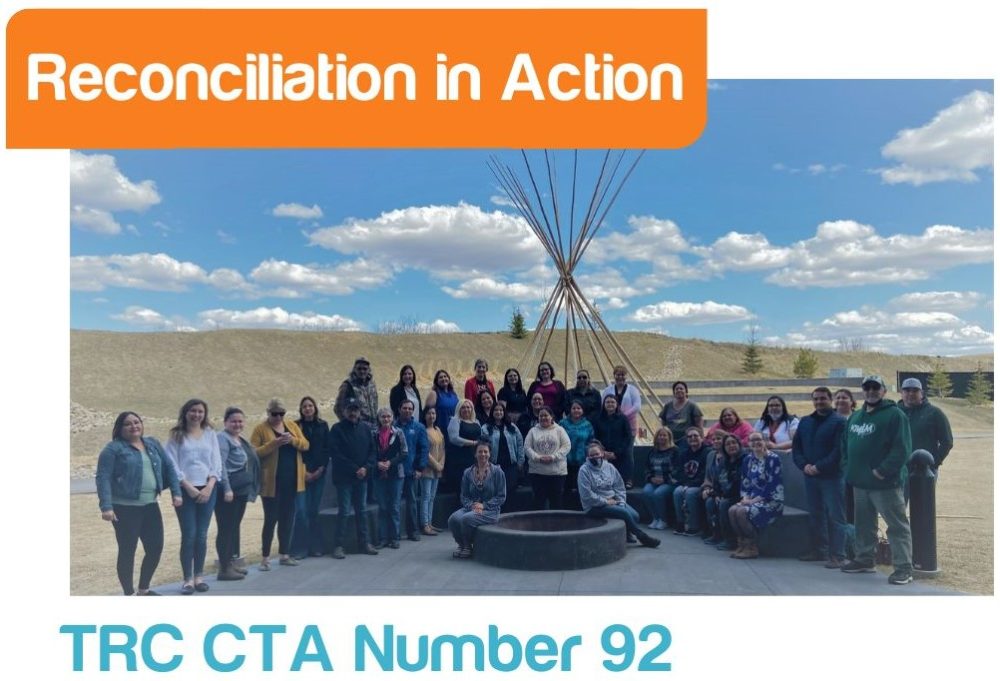
We call upon the corporate sector in Canada to adopt the United Nations Declaration on the Rights of Indigenous Peoples as a reconciliation framework and to apply its principles, norms, and standards to corporate policy and core operational activities involving Indigenous peoples and their lands and resources.
This would include, but not be limited to, the following:
i. Commit to meaningful consultation, building respectful relationships, and obtaining the free, prior, and informed consent of Indigenous peoples before proceeding with economic development projects.
ii. Ensure that Aboriginal peoples have equitable access to jobs, training, and education opportunities in the corporate sector, and that Aboriginal communities gain long-term sustainable benefits from economic development projects.
iii. Provide education for management and staff on the history of Aboriginal peoples, including the history and legacy of residential schools, the United Nations Declaration on the Rights of Indigenous Peoples, Treaties and Aboriginal rights, Indigenous law, and Aboriginal–Crown relations. This will require skills based training in intercultural competency, conflict resolution, human rights, and anti-racism.
Cultural Humility Training
AFCS is currently in the process of developing its very own provincial-wide Cultural Humility Training workshop, alongside our Member Friendship Centres who are developing their own community-focused Cultural Humility Training workshop.
Through this training, we can learn that culture influences our response to our environment. It’s important to note that we belong to multiple cultures and that culture is constantly evolving. We focus on some key points in Culture Humility Training.
- Challenge personal biases
- Be willing to adapt
- Become aware of your privilege
- Learn about other cultures
- Interact with other cultures
Indigenous Groups
In Saskachewan there are 70 First Nations of which 63 are affiliated to 1 of the 9 SK tribal councils.
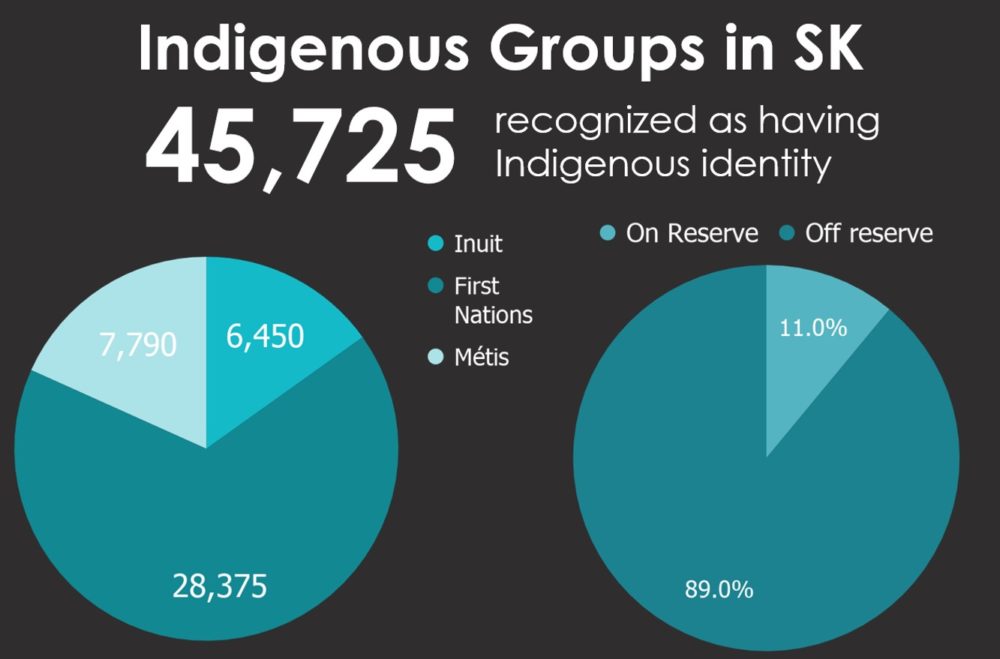
Indigenous Cultural Diversity Training – Support and Collaboration
We decided to reach out to First Light for assistance in reaching our goals. First Light is a registered non-profit organization that serves the urban Indigenous and non-Indigenous community alike by providing programs and services rooted in the revitalization, strengthening, and celebration of Indigenous cultures and languages in the spirit of trust, respect, and friendship.
AFCS was welcomed with open arms. First Light supported us and gave us the training necessary to become our own program facilitators to empower us to pass on this knowledge to others.
Now we are closer to offering these educational experiences through our Cultural Humility Training to teach about the Indigenous groups in our province, our history, and how that information can be beneficial to our community as a whole.
It is important that we not only learn about the cultural differences that we may see across different groups, and understand the history behind them but that we examine each learner’s own culture and how that impacts our everyday lives. These sessions are provided in a safe space, meant for individuals and groups to come together and gain Indigenous knowledge, enhance self-awareness and they are great professional development opportunities for any professional working with Indigenous people.
Learn More: https://firstlightnl.ca/program/training/
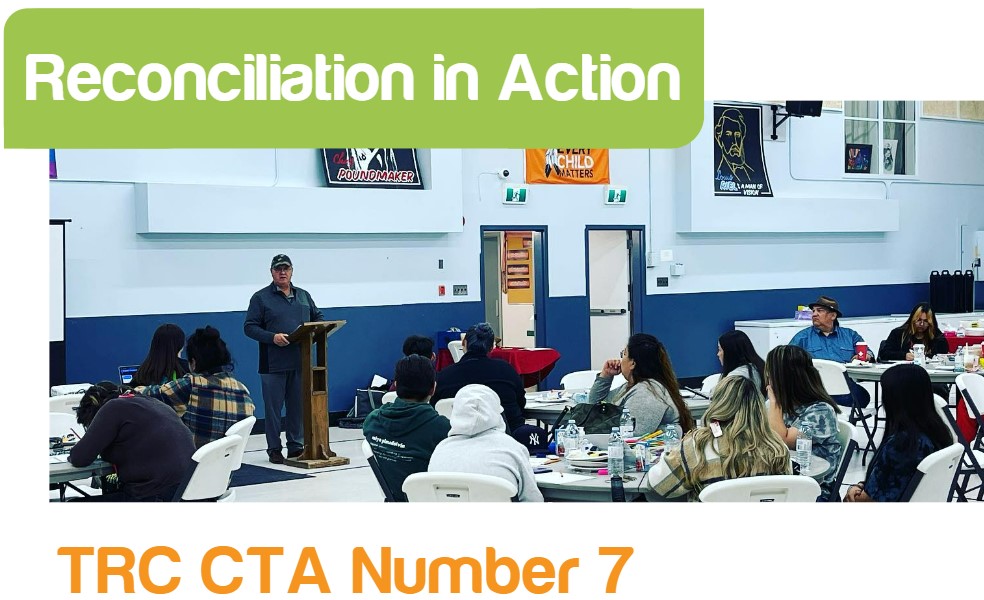
We call upon the federal government to develop with Aboriginal groups a joint strategy to eliminate educational and employment gaps between Aboriginal and non-Aboriginal Canadians.
The Youth Leadership Program
The YLP intends to help shape the next generation of leaders. We want to assist youth in building new skills to help them become more equipped to handle what life throws at them while on their journey. We want to help foster teamwork, collaboration, and social skills alongside building confidence and self-esteem.
Learn more: https://afcs.ca/initiative/youth-leadership-program/
We celebrate the successful allocation of funding that has already reached 2,561 points of service for those aged 14 and younger, and 3,115 points of service for those aged 15-30.
This is a total of 5,676 points of service in a span of 5 months.
Currently Planned for 2022/2023 Provincial Workshop Topics:
- September: Grant Writing & Photography
- November: Youth Empowerment and Art Workshop
- January: Mental Health
- March: Cultural Education
We aim to support youth, contribute, build capacity and opportunities through community initiatives, public engagement, training, peer to peer learning, volunteering, and mentorship through a hands-on, project-based, workshop experience. As well as, providing access and knowledge to culture, education, employment, and self-care opportunities for youth in our Friendship Centre communities.
The youth of today are the leaders of tomorrow. It is important to provide opportunities for youth in our communities to flourish, gain knowledge and skills, and realize their full potential. Providing leadership programs for youth will set them up to be successful in their life-long journey. Leadership programs are vital for youth to develop independent thinking, confidence, autonomy, decision making, self-leadership, and development of their identity. Investing in our youth now, is investing in the future of our communities.
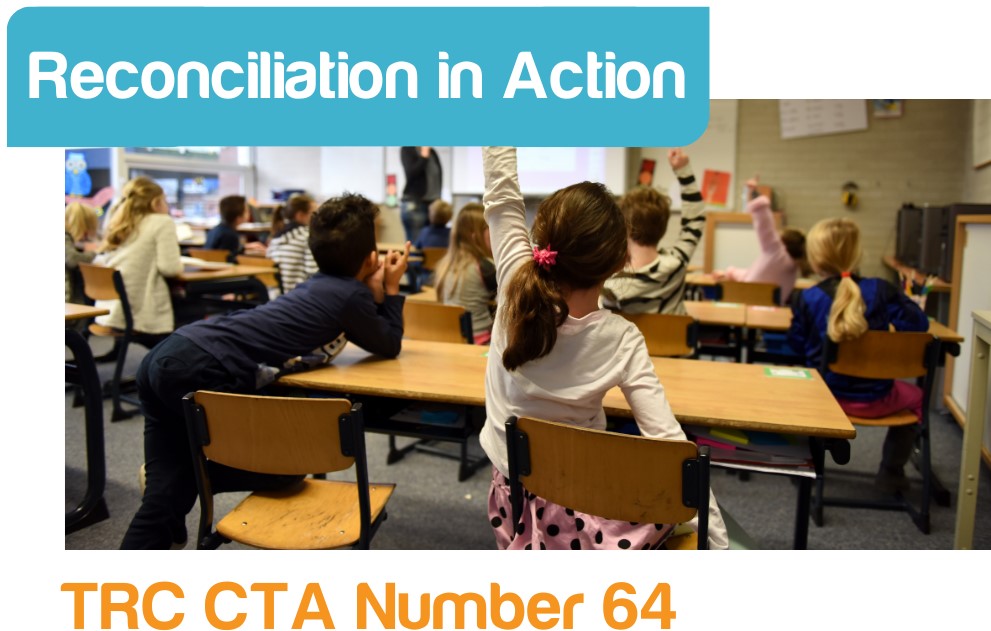
We call upon all levels of government that provide public funds to denominational schools to require such schools to provide an education on comparative religious studies, which must include a segment on Aboriginal spiritual beliefs and practices developed in collaboration with Aboriginal Elders.
“Elders in the Classroom” is a program organized by the Saskatoon Indian & Métis Friendship Centre. During the school year, the program helps in connecting Elders with schools to share knowledge and teachings to youth students.
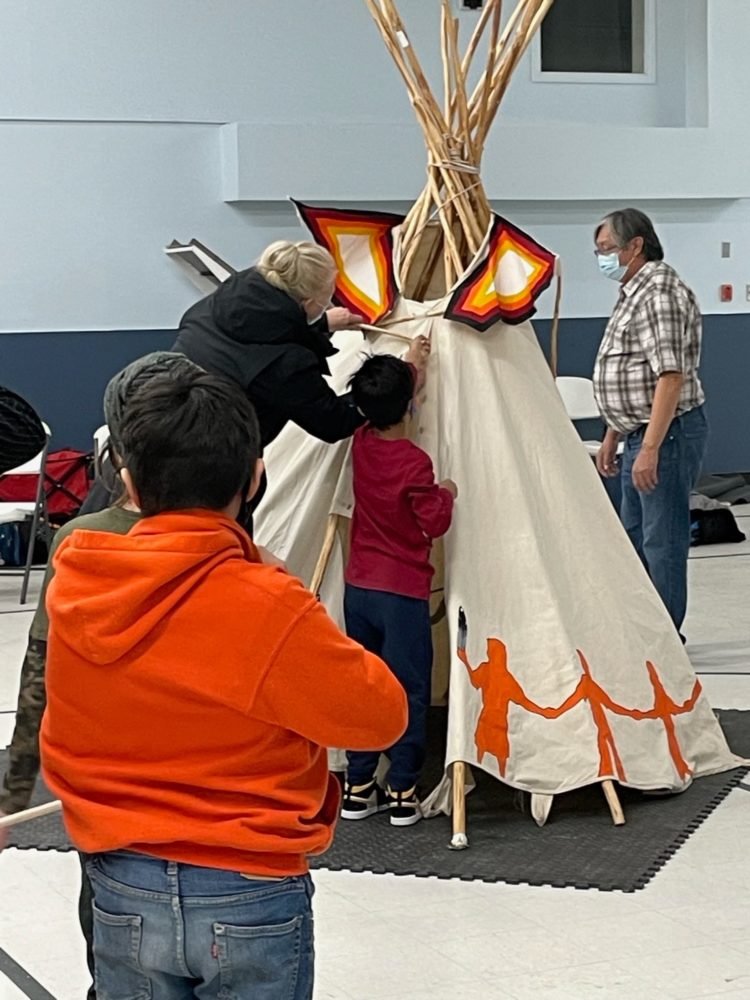
This is a cultural-based program led by Elder Sanford Strongarm Sr. and assisted by Sanford Strongarm Jr.
The schools involved are both public and catholic divisions. Including, pleasant hill; St Francis; Caswell Hill ; Wesmount; and King George.
Elders in the Classroom operates 3 days per week: Tuesday, Wednesday, and Thursday from 9 am to 3 pm. For the grades between Pre-K; Kindergarten; Grade 1 & 2 the program is delivered in each school. For the grades between grade 3 – grade 8 the program is delivered at the SIMFC facility.
The program’s content covers a wide variety of cultural teachings and topics. Stick games; hand games; Teepee Making; medicines; bannock making & sharing; General wilderness survival skills; beadwork; drum making; dream catchers; drum stick making; Pow wow dance demonstrations and pow wow singing, etc.
Visit or contact the Saskatoon Indian & Métis Friendship Centre to learn more.
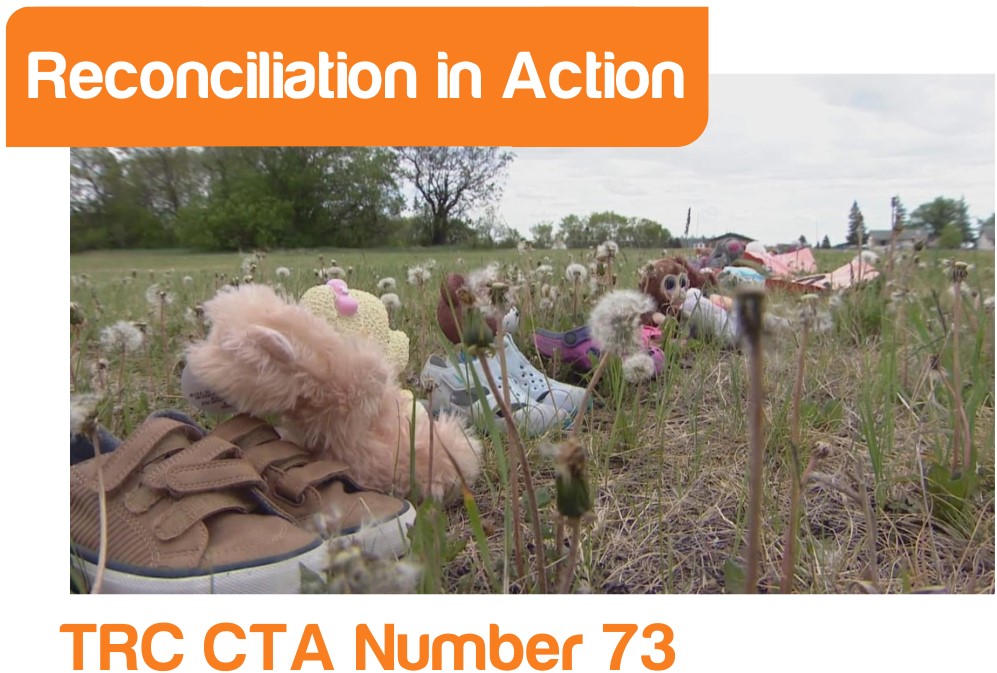
We call upon the federal government to work with churches, Aboriginal communities, and former residential school students to establish and maintain an online registry of residential school cemeteries, including, where possible, plot maps showing the location of deceased residential school children.
The Canadian Indian Residential School System
Bodies, unmarked graves, and potential burial sites have been identified near residential school sites across Canada since the 1970s, mainly using ground-penetrating radar. In Canada, the Indian residential school system was a network of boarding schools for Indigenous peoples. The network was funded by the Canadian government’s Department of Indian Affairs.
Each year, September 30th marks the National Day for Truth and Reconciliation.
The day honours the children who never returned home and Survivors of residential schools, as well as their families and communities. Public commemoration of the tragic and painful history and ongoing impacts of residential schools is a vital component of the reconciliation process.
Of the 139 recognized residential schools, 59 cemeteries were identified by the Commission, and 55 individual reports detailing information about the history of each cemetery were created. The effort to fully document the children that never returned home from the schools remains ongoing.

It is estimated that Saskatchewan’s residential school death toll is far higher than the 566 confirmed cases. The remains of as many as 751 people, mainly children, had been found in unmarked graves on just one of the sites of a school in Saskatchewan. There were 22 residential schools in Saskatchewan, operated under the authority of the Roman Catholic Church, the Anglican Church, and the Presbyterian Church with only 20 of the schools formally recognized by the Federal government.
Over 50,000 Indigenous children were taken from their families. 90 to 100% suffered severe physical, emotional, and sexual abuse. There was a 40 – 60% mortality rate in Indian residential schools.
“Our province remains committed to our partnership with First Nations and Métis people and communities as we move forward together on the continuous path of reconciliation,” Minister Responsible for First Nations, Métis and Northern Affairs Don McMorris said. “September 30 is an important day for reflection, and I encourage all Saskatchewan people to use this as an opportunity to commemorate the tragic legacy of residential schools in our province.”
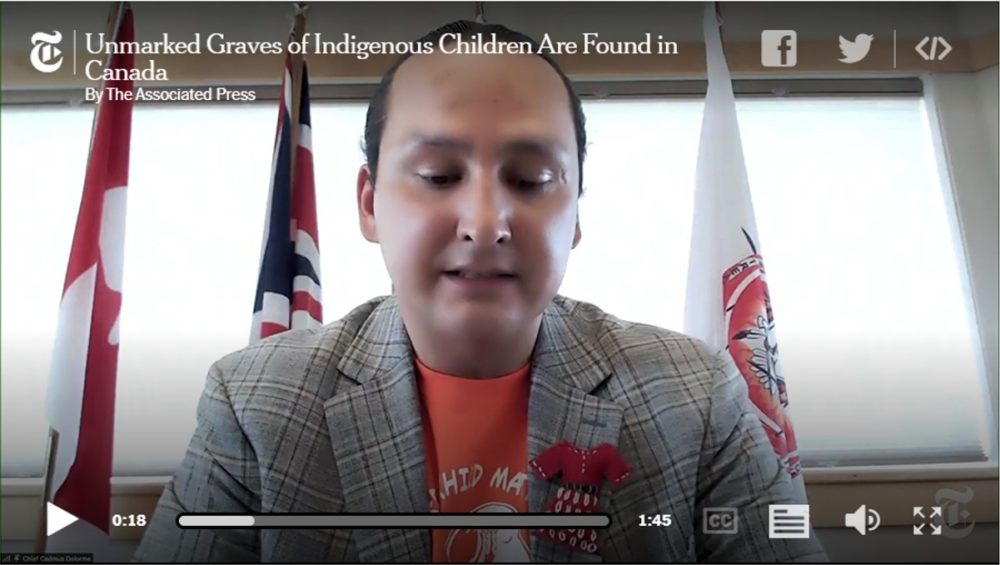
The last Indian residential school, located in Saskatchewan, closed in 1996. On June 11, 2008, Prime Minister Stephen Harper on behalf of the Government of Canada issued a public apology to Aboriginal Peoples acknowledging Canada’s role in the Indian Residential Schools system.
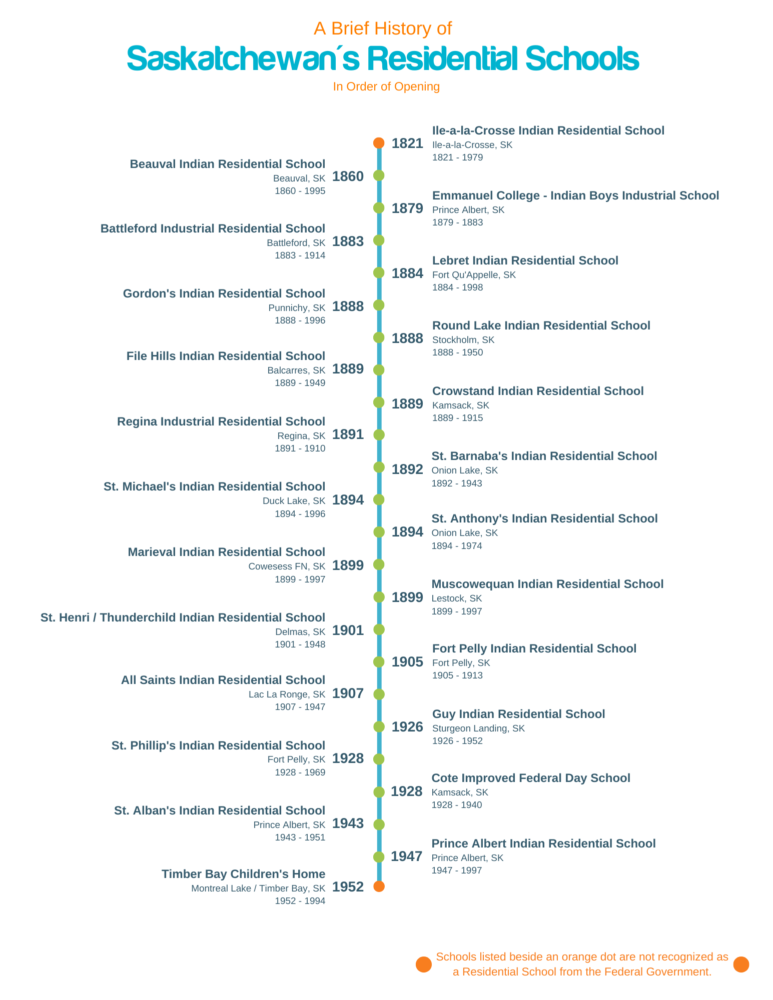
Truth and Reconciliation Commission (TRC)
On June 1, 2008, the Truth and Reconciliation Commission (TRC) was established to uncover the truth about the schools. The commission gathered about 7,000 statements from residential school survivors through public and private meetings at various local, regional and national events across Canada.
History
Throughout its history, the Canadian Indian residential school system saw many deaths. The number of school-related deaths remains unknown due to incomplete records. Estimates range from 3,200 to over 6,000. Comparatively few cemeteries associated with residential schools are explicitly referenced in surviving documents, however, the age and duration of the schools suggests that most had a cemetery associated with them. Most cemeteries were unregistered, and as such the locations of many burial sites of residential school children have been lost.
To date, the sites of unmarked graves are estimated to hold the remains of more than 1,900 previously unaccounted individuals, mostly children. However, across the entire residential school system, the number of identifiable children who are documented as having died while in their custody is over 4,100 individuals; the fourth volume of the Truth and Reconciliation Commission of Canada “identified 3,200 deaths on the Truth and Reconciliation Commission’s Register of Confirmed Deaths of Named residential School Students and the Register of Confirmed Deaths of Unnamed Residential School Students”.
Nation Wide
For up-to-date information on the NCTR, please utilize the NCTR website and archive. https://nctr.ca/

The Memorial
https://nctr.ca/memorial/ – search by school or search by name
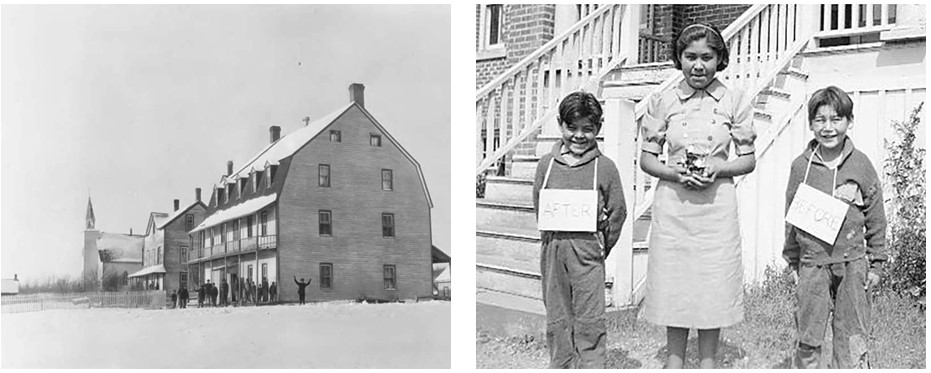
The Memorial Map
https://nctr.ca/memorial/national-student-memorial/memorial-map/
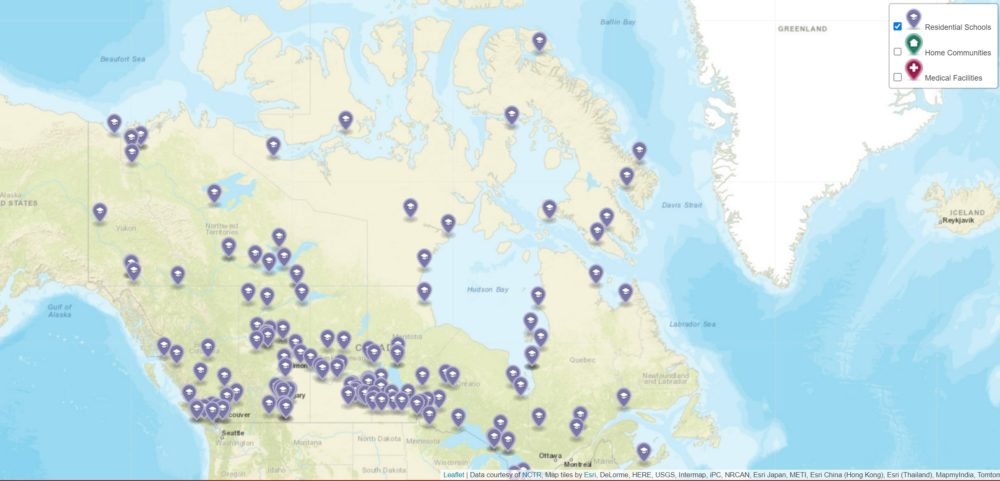
Records and Reports
Reports listed here were issued or created by the Truth and Reconciliation Commission of Canada (TRC). These digital copies can be accessed or duplicated at no charge from the NCTR’s website. All reports are in the public domain.
https://nctr.ca/records/reports/
Where are the children buried?
We would like to bring these reports to the country’s attention as there is more work to be done and more children to be found to honour and protect them.https://ehprnh2mwo3.exactdn.com/wp-content/uploads/2021/05/AAAA-Hamilton-Report-Illustrations-final.pdf
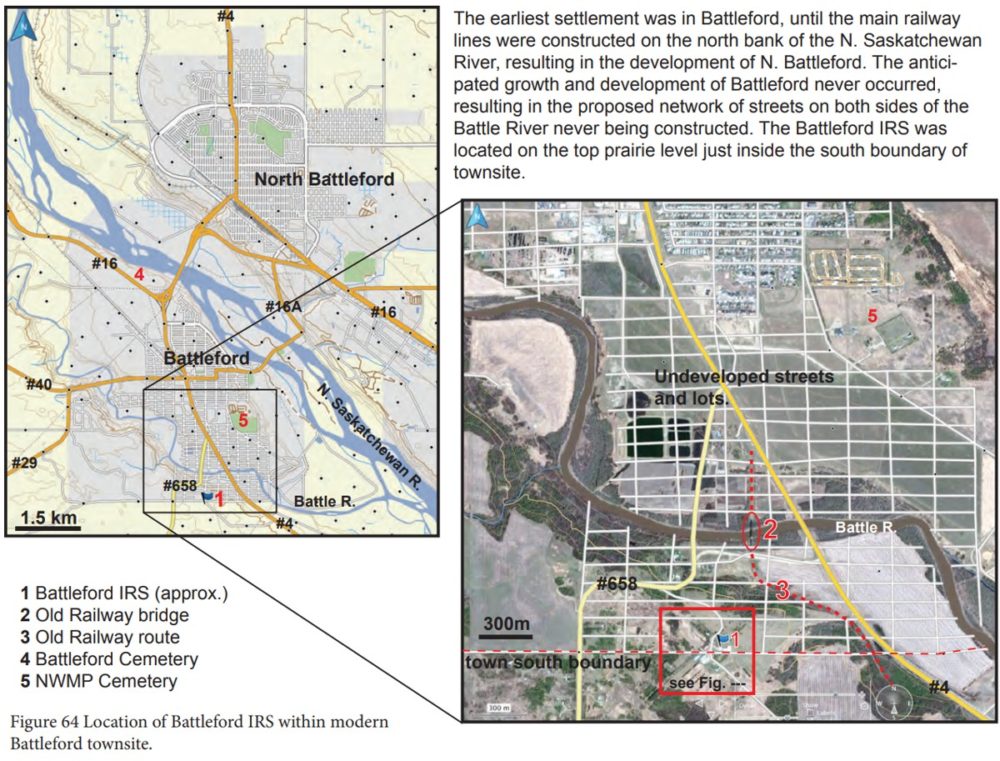
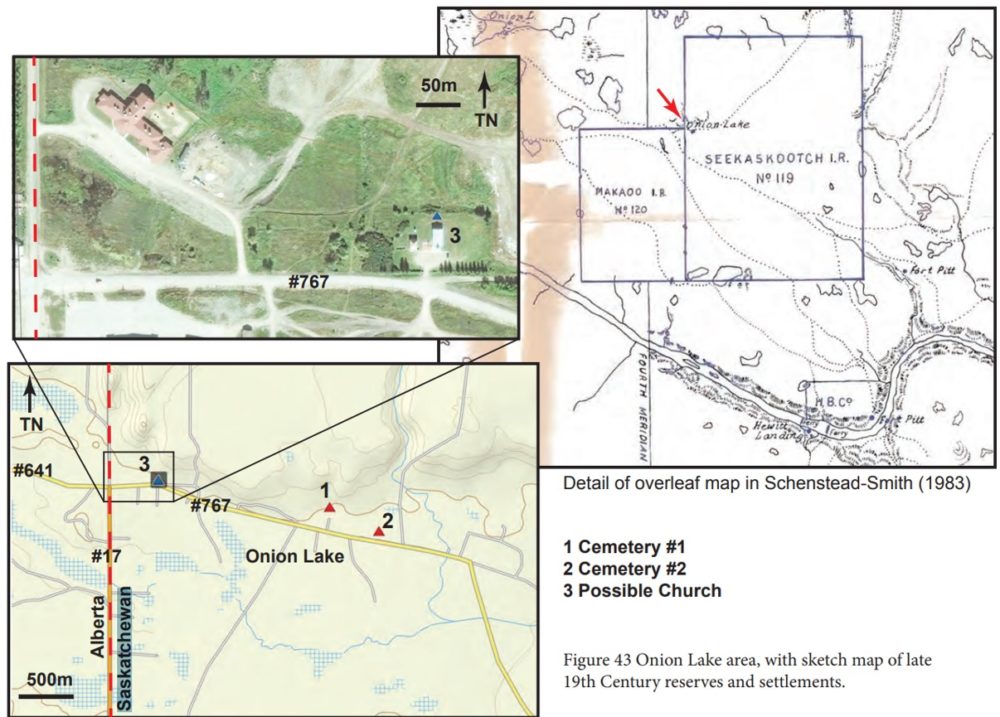
AFCS is committed to honouring all the work of Indigenous people that has come before us, including the Truth and Reconciliation Commission’s Calls to Action. The Friendship Centre Movement in Saskatchewan continues our work to honour every call moving forward.
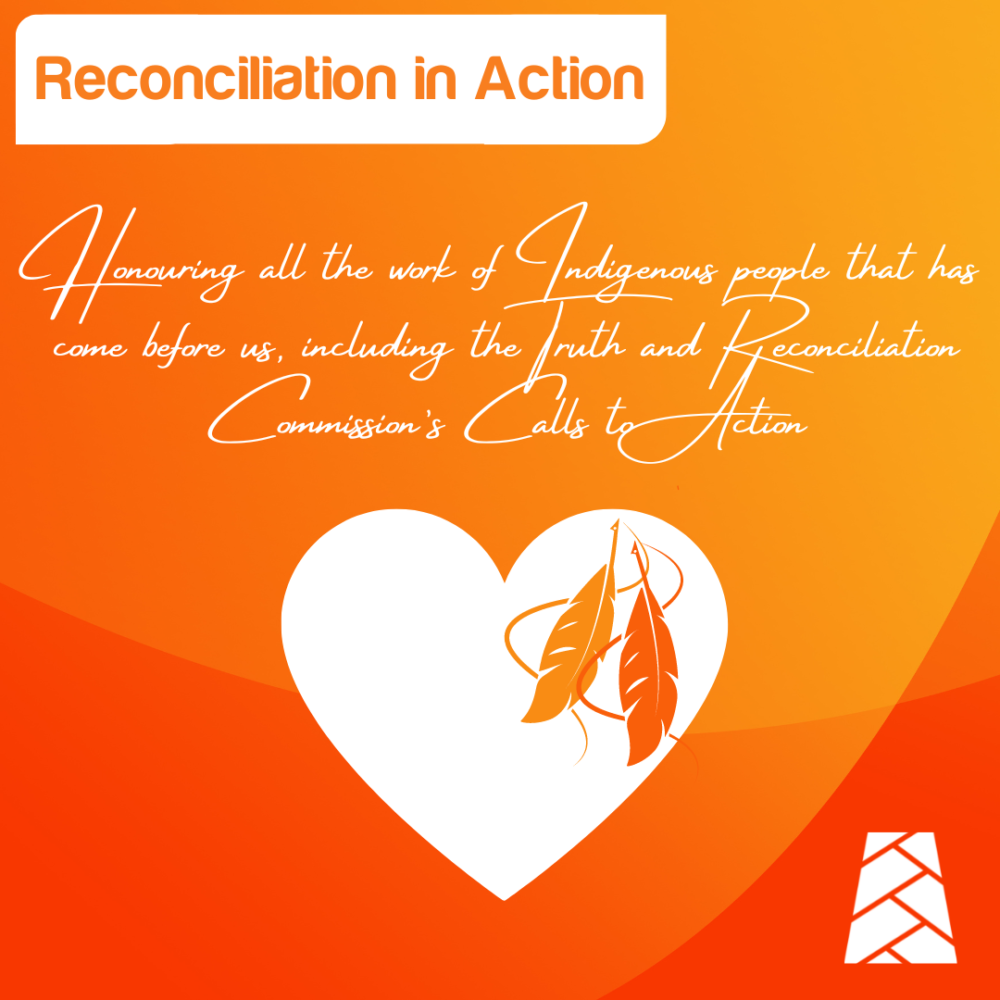
- Battleford Indian & Metis Friendship Centre
- Buffalo Narrows Friendship Centre
- Ile a la Crosse Friendship Centre
- Kikinahk Friendship Centre
- La Loche Friendship Centre
- Newo-Yotina Friendship Centre
- North West Friendship Centre
- Prince Albert Indian & Metis Friendship Centre
- Qu’Appelle Valley Friendship Centre
- Saskatoon Indian & Metis Friendship Centre
